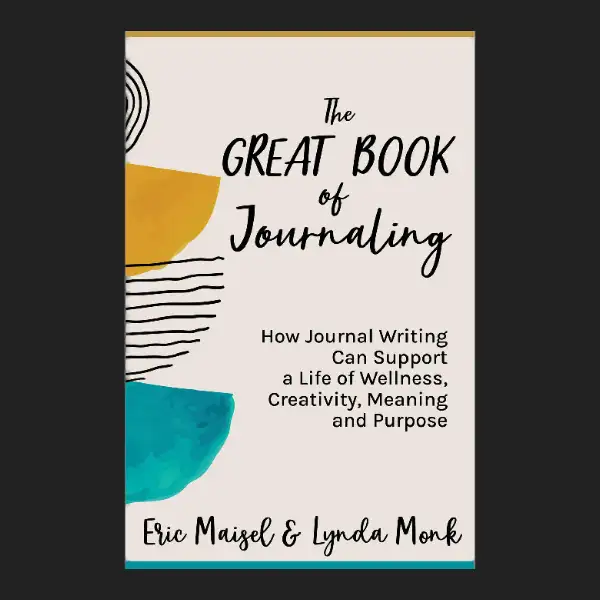This article will discuss what journaling is good for and why you should get into journal writing. We will also cover how journaling helps mental health and journaling for therapy, so make sure to read until the end.
We will start with the basics of journaling health benefits, starting a journal, journaling techniques to use for best results, and how to journal for therapy. Let’s get going.
Health benefits of journaling
Journaling is a great way to relieve stress, eliminate negative energy, and get your head out of everyday problems. When you do that, you will also feel an improved mood and general well-being. It can also help with learning more about yourself and getting in touch with your emotions.
So journaling is good for many things and has many health benefits that can help you improve in many aspects of life. The importance of journaling, although differing from person to person, is to feel better and lead a more fulfilling life. Journaling can do wonders for you mentally, physically, and emotionally.
What kinds of things should you journal about?
What to journal about is entirely up to the person filling that journal up, but I recommend you find something you enjoy. Then, it won’t feel like a chore but a pleasure. You can write about day-to-day things happening in your life, express your thoughts and feelings, and fantasize about your love life, travel journeys, or hopes and dreams.
For some, it’s a way to leave something behind for the next generations when they are gone. So find what is worth documenting to you, and bring those pages to life.
How to start a journal
People often ask me, ‘how do I start a journal?’ Well, simple – start writing and keep journaling. A journal is entirely personal, so no one can tell you what you can or cannot do.
Want to start a personal diary or a daily analysis journal? Good, why not? Or write stories about superheroes you loved as a kid? Sounds fun. Foot fetishes? Weird but okay. As you can see, there are no rules. Write about whatever you want to, and when you start journaling, the ideas will keep coming and coming.
Read more: What Are The Best Tools To Write A Book
I always recommend starting with a free-for-all where you will write, draw or scribble whatever you want – no rules and guidelines, just a blank piece of paper and a pen. It is one of my favorite journaling techniques.
Be as messy or formal as you want, and choose the topics on a whim. It’s a fun way to get started and creatively express your emotions. After a while, you will know your forte and how you want to structure your diary.
More journaling techniques
One other journaling technique is to write a letter to a future self.
The first time I did that, it was for a school project. I was ten years old and writing to a high schooler myself. It felt good when I read the letter, even at twenty-five. My future self was proud to achieve what the young me had planned for us.
You can also write about things you liked, hated, or regretted for the day. For example, a friend wrote a book by writing a sentence daily. Although it took him years, he did finish it.
There are no official journaling techniques, but as you can see, if you’re creative, there is no limit. Make it up yourself.
How can journaling help you achieve your goals
When you write your goals down, they become more official. To you, at least.
When you manage to write out all your hopes and dreams on a piece of paper, it’s harder to abandon them and give up. You will feel a certain responsibility towards the things you promised yourself to do, and those can help to keep going.
Read more: How To Start A Blog And Make Money
Writing the goals down also helps with clarity – if you write about your goals daily, the road to reaching them will become more apparent and easier to follow. Finally, remember that daily writing will make you better at writing and communicating in no time.
How can journaling become a habit?
Habits are habits, and they are always hard to build and maintain. You must set clear and specific goals to implement a habit into your daily routine successfully.
Create a detailed plan with what you will do, how often and how long you will write about it, and what you want to achieve. Whatever you decide to write about, try to make it fun, and it will be easier to continue toward your goals. Get much-needed support from your close ones, and there’s no stopping you.
The way to build a habit is to repeat the same behaviors repeatedly. Then, when you have written enough into your journal, journaling will become a routine, like everything else in your life.
Of course, we all have specific patterns and schedules, but I recommend nurturing flexibility. Be flexible about when you will write and when you will write.
However, the only safe way to incorporate journaling into your routine, sooner or later, is to keep going. I also recommend you read the best-seller book ‘Atomic Habits’ by James Clear to understand and break your habits once and for all.
Don’t get discouraged, and keep journaling
Set realistic goals that you will follow through, and you won’t be discouraged when you don’t because the bar isn’t set too high.
If you’re missing inspiration, remember that even the best writers go through writer’s block and that the more you do it, the better you will become.
If you miss a day sometimes, don’t worry – pick up where you left off tomorrow.
It is also crucial to not expect too much. Realistic expectations are goals you can sensibly expect to achieve, which will differ for you and me.
Our limits, capabilities, willpower, and other characteristics are different, and you must be aware of yours. These factors can affect productivity. For example, don’t set a goal to write three hours daily if you know you only have one hour available daily.
Read more: The 14 Best True Crime Books
How to journal for therapy
We already mentioned all the health benefits journaling can bring you – now it’s time we explain how to journal for therapy.
Journaling for therapy or therapeutic journaling is “writing down our thoughts and feelings about our personal experiences. This kind of private reflection allows us to sort through events that have occurred and problems that we may be struggling with.”
Expressing our emotions is good for our health. When you write down those emotions on a blank paper, you can construct a personal narrative about your experiences. It can bring clarity and help you understand the bigger picture.
Why not try therapeutic journaling if you’re feeling stressed, anxious, or in a bad mood? While it’s not a replacement for therapy, it can help you feel better and make sense of the crazy lives we are living.
You even create a possibility to return to happier moments in life at any time. Open up a diary and skim through several pages, and you’re there for a moment.
The bottom line
Well, this is what journaling is good for. Should you get into journal writing? That’s for you to decide.
If you have the time, why not start a journal and apply all these journaling techniques that will benefit your mental health? It will even improve your grammar and writing skills.
Can’t go wrong with it. Journaling has no negatives, so get into it if you can. It’s therapy.
Additionally, check our guide on the best nootropic supplements to improve your mood and relax.
We may earn a commission if you buy something using links in our articles. This helps support our writing. Learn more.


